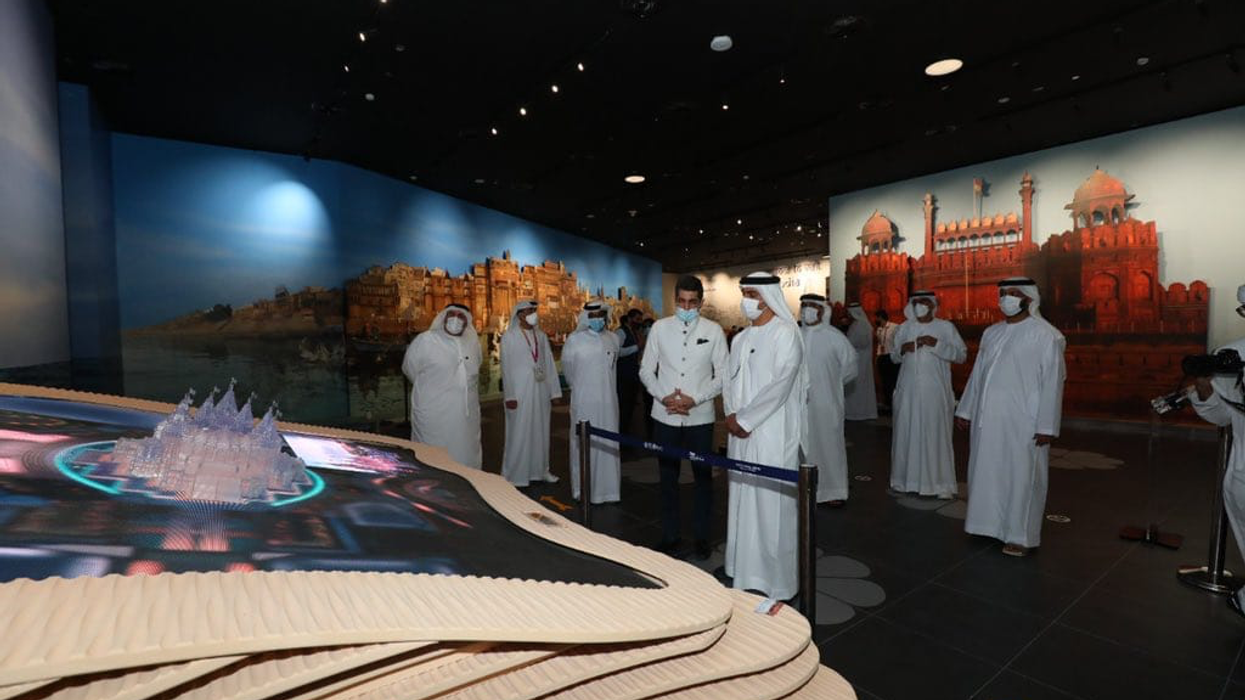UNITED ARAB EMIRATES deputy prime minister and minister of presidential affairs, Sheikh Mansour bin Zayed Al Nahyan, last week visited the BAPS Hindu temple display at the India Pavilion at the Expo 2020 Dubai with consul general Dr Aman Puri.
He is the latest dignitary to visit the display after India’s minister for commerce and Industry Piyush Goyal saw the 3D translucent crystalline model of the upcoming BAPS Hindu Temple in Abu Dhabi.
Goyal inaugurated the India Pavilion at the expo on October 1.
“This BAPS Hindu Mandir in Abu Dhabi will be amazing once completed,” he said.
India’s prime minister Narendra Modi laid the foundation stone in February 2018 for the Swaminarayan temple of the Bochasanwasi Shri Akshar Purushottam Swaminarayan (BAPS) Sanstha through a video link.
Once completed, it will be the first Hindu temple in Abu Dhabi.
Construction of the BAPS temple began in December 2019; upon completion, it will feature seven spires and five ornate domes and will serve the community in the UAE.
Meanwhile, a delegation from Gujarat visited the temple under construction in Abu Dhabi.




